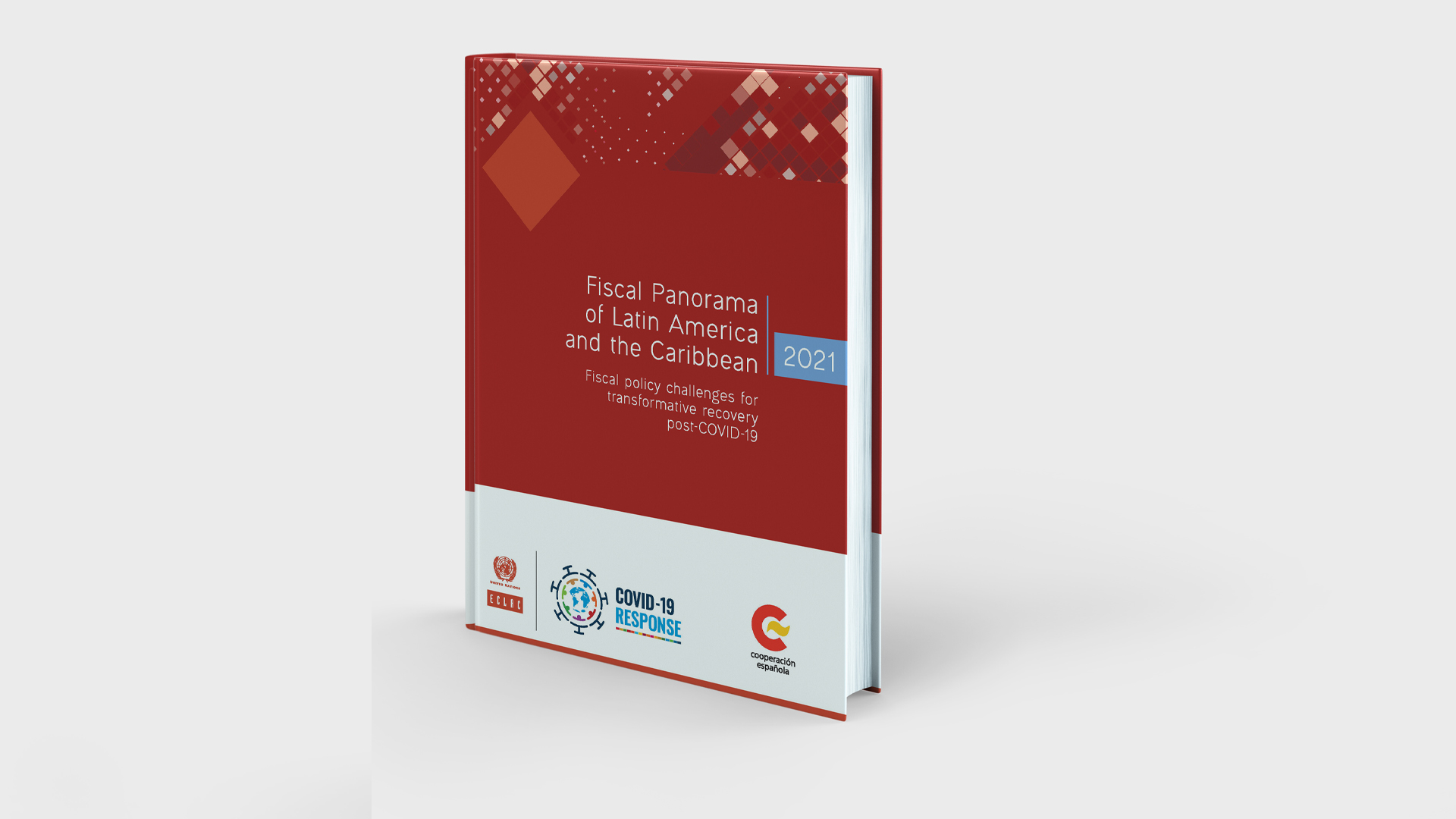To Drive the Economic Reactivation and Mitigate the Pandemic’s Negative Effects, It is Essential that the Region Maintain Expansionary Fiscal Policy
Work area(s)
In its Fiscal Panorama 2021, ECLAC indicates that a transformative recovery post-COVID-19 necessitates a new strategic orientation for public spending and revenue.

At the thirty-third edition of the Regional Seminar on Fiscal Policy – taking place on April 21-23 – ECLAC’s Executive Secretary, Alicia Bárcena, presented virtually the Fiscal Panorama of Latin America and the Caribbean 2021, which analyzes the fiscal dynamics in 2020 along with the main challenges in 2021 in a context marked by great uncertainty regarding the evolution of the COVID-19 pandemic and the economic and social trajectories of the region’s countries.
According to the report, growth dynamics in 2021 will not be sufficient to offset the drop in economic activity experienced in 2020 or to roll back the increases in poverty and inequality. Similarly, it foresees a slow recovery in employment levels that will not make up for the sharp job losses incurred last year, with women affected the most as their labor participation suffered a 10-year setback. Meanwhile, the persistence of the pandemic, the asymmetries in the availability of vaccines and uncertainty about their effectiveness, along with the uneven and divergent paces of economic reactivation, cast doubt on the speed and sustainability of the economic recovery.
“It is important to extend the packages of fiscal measures in 2021 given the fragility of the economic recovery process and to continue mitigating the negative social, productive and economic effects of the pandemic,” Alicia Bárcena explained. Along with the need to sustain fiscal policies in the emergency, in her presentation ECLAC’s Executive Secretary analyzed the two major challenges facing fiscal policy in the region’s countries: generating financing to maintain public spending amid the pandemic, and strengthening the sustainability of expansionary fiscal policy. Both challenges necessitate rethinking the orientation of public spending and revenue policies, she indicated.
According to the report, in 2020, Latin America and the Caribbean was the developing region most affected by the COVID-19 pandemic, while structural gaps intensified in terms of inequality, limited fiscal space, low productivity, informality and fragmentation of social protection and health systems. To address the pandemic’s social and economic effects, the region’s countries adopted expansionary fiscal policies. The fiscal efforts announced in 2020 represented 4.6% of GDP on average for the countries of the region. These efforts were aimed at strengthening public health systems, supporting families and protecting the productive structure. The main instruments used to mitigate the social and economic impacts of the pandemic were subsidies and cash transfers.
The expansion of public spending to tend to the crisis along with the drop in tax collection entailed significant increases in fiscal deficits and debt levels in the region, with gross central government public debt averaging 56.3% of GDP. Furthermore, the region is one of the most heavily indebted in the world and has the highest ratio of external debt service to exports of goods and services (59%).
“Linking the emergency to the reactivation is essential for boosting the role of public spending on the path to inclusive and sustainable development. This involves tying attention to short-term demands in with sustainable and employment-intensive investments, especially for women, promoting a productive transformation and the strengthening and universalization of social protection systems,” Alicia Bárcena emphasized.
According to the report, with regard to fiscal revenue, changes will be needed in the taxation structure to increase the tax burden, progressivity and to have a greater impact on improving income distribution. This is essential for being able to maintain public spending trajectories in a context of fiscal sustainability. In this sense, the Fiscal Panorama of Latin America and the Caribbean 2021 analyzes the challenges related to bolstering direct taxes, in particular the wealth tax and its potential for strengthening tax collection and the progressivity of tax policy in a scenario of countries’ heightened financing needs.
The document adds that the widespread rise in indebtedness has increased financing needs in the region. That is why it is essential that international cooperation, through financing for development, support the expansion of countries’ fiscal space in the short and medium term. This entails the “expansion and redistribution of global liquidity, debt relief, strengthening the lending capacity of development banks, and the use of innovative financing instruments,” Bárcena stated.
The Fiscal Panorama 2021 also addresses the fact that fiscal policy is not gender neutral and poses the importance of mainstreaming a gender perspective in the design of fiscal policies by analyzing the distributive effects on women of revenue, spending and investment policies, while also highlighting the importance of incorporating a gender approach throughout the entire budget cycle, and ensuring that budget reallocations or cuts do not affect financing for gender equality policies.
Prior to the presentation of the report, in the framework of the XXXIII Regional Seminar on Fiscal Policy, a meeting of Finance Ministers from the region was held on Tuesday, April 20, drawing the participation of Ministers, Deputy Ministers and Directors of technical areas from 14 countries in the region. ECLAC’s Executive Secretary posed to authorities the fiscal policy challenges that are analyzed in the Fiscal Panorama of Latin America and the Caribbean 2021, stressing the centrality of the role of the State and of fiscal policy, not only for managing distinct contingencies – for example, those related to health or natural disasters – and the economic and social effects they cause, but also for promoting inclusive and sustainable development.
Related content
Fiscal Panorama of Latin America and the Caribbean 2021: Fiscal policy challenges for transformative recovery post-COVID-19
Presentation by Alicia Bárcena, Executive Secretary of ECLAC.


XXXIII Regional Seminar on Fiscal Policy
The XXXIII Regional Seminar on Fiscal Policy is organized by the Executive Secretary of the Economic Commission for Latin America and the Caribbean (ECLAC), through the Economic Development Division…
Related link(s)
Country(ies)
- Latin America and the Caribbean
Contact
Public Information Unit
- prensa@cepal.org
- (56 2) 2210 2040